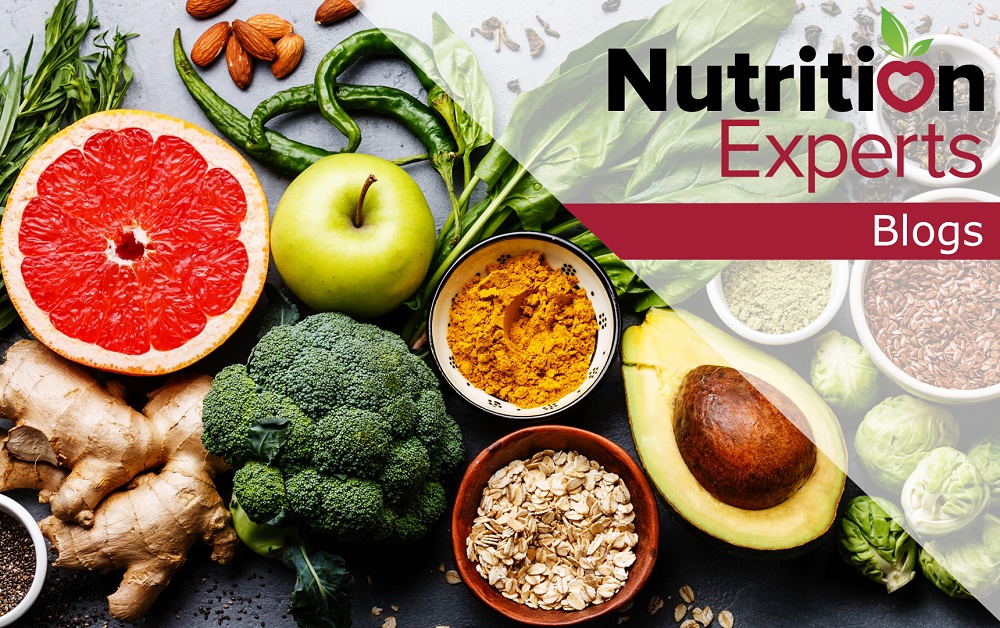By Caroline Pak, DTR, CSUN Dietetic Intern

Image: Lisovskaya Natalia/Shutterstock
Individuals choose to adopt a vegetarian diet due to environmental interests, animal rights, or health concerns. Whatever the reason, vegetarians should be aware of how to customize their meals to meet their nutrient needs.
Protein
A vegetarian diet does not include meat, such as beef, chicken, fish, and wild game. Protein is essential for muscle growth, repairing damaged tissue, and as an energy source.1 The Dietary Guidelines for Americans recommend that protein should make up 10% to 30% of daily calories.1 The Recommended Dietary Allowance (RDA) for protein for the average adult is 0.8 g/kg of body weight.1 However, considering protein digestibility scores, it is recommended that vegetarians consume 1 g/kg of their body weight per day.1 To meet these recommendations, vegetarians can get protein from soy, beans, lentils and dairy. As long as an individual consumes a variety of plant-based proteins, they should receive adequate protein intake.2
Vitamin B12
Some common vitamins and minerals that vegetarians should be monitoring would include vitamin B12.3 The RDA for vitamin B12 is 2.4 mcg for the average adult.4 A deficiency can lead to megaloblastic anemia, neurological problems, fatigue, loss of appetite, weight loss, and constipation.4 Vitamin B12 can be found in eggs, fish, meat, poultry, fortified foods, and dairy.3-4 For those who desire a more restricted diet, such as vegetarians, it can be harder to get enough vitamin B12.1, 3-4 Therefore, they should include soy products that have been fortified with B12, eggs, dairy and take a vitamin B12 supplement (cyanocobalamin) per their medical provider’s recommendation.3-4
Vitamin D
Vitamin D is another vitamin that vegetarians should monitor. Vitamin D is crucial for bone health.3 The RDA for vitamin D is anywhere from 15 mcg to 800 mcg for adults.5 It can be found in fish, egg yolks, fortified orange juice, fortified dairy, and fortified cereals.3 Therefore, vegetarians and vegans should include fortified products into their daily diet to ensure adequate vitamin D intake. Similarly, calcium can be obtained through fortified foods. However, calcium can also be found in beans, green leafy vegetables, and dairy products.1
Iron
To prevent anemia, fatigue, and other side effects, individuals also need to monitor their iron status. Iron is commonly associated with heme-products such as red meat. However, it can also be found in non-heme products such as fortified cereals, beans, eggs, whole grains, and some dark leafy vegetables.1,3 To increase iron absorption, it is recommended to use an iron cast skillet for cooking, and to eat foods high in iron and vitamin C at the same time.1
Overall, individuals should be able to meet their nutrient requirements on a plant-based diet. All it really takes is adding a few crucial ingredients to one’s meals every day. After discussing what foods are high in the nutrients that people need to eat, one should see a pattern. Soy, beans, fortified foods, and eggs can be staples in the healthy vegetarian diet.

Lentil Mango Salad
Author: Chef Fran Walker6
Serves: 10 (½ cup per serving)
Ingredients:
- 1 cup dried brown lentils
- 1 medium mango or apple
- 1 medium red bell pepper
- 1 large lemon
- ¼ cup canola oil
- ½ teaspoon cumin
- ½ teaspoon salt
- ¼ teaspoon ground black pepper
- ½ cup minced fresh parsley and/or cilantro (optional)
- ½ cup chopped walnuts or toasted coconut (optional)
Directions:
- In a large pot, add lentils. Cover with water by 2 inches. Bring to a boil over high heat. Reduce heat to a simmer. Cook until tender, about 20 minutes. Drain.
- Rinse, peel, and dice mango. Rinse and dice bell pepper.
- Rinse lemon and cut in half. In a small bowl, squeeze juice. Discard seeds.
- If using, rinse and chip cilantro. Chop walnuts or toasted coconut.
- In a large bowl, use a fork to whisk together lemon juice, oil, cumin, salt, and pepper. Add cooked lentils, mango, and bell pepper. Mix well. If using, stir in herbs and nuts or coconut.
For more vegetarian friendly recipes, subscribe to our Nutrition Experts YouTube channel. The Marilyn Magaram Center brings a variety of healthy recipes online rich in vitamin C, vitamin A, calcium, and iron, such as this recipe for Nutty Vegan Orange-Cranberry Muffins.7
References
- Cullum-Dugan D. Top Questions Vegetarians Ask RDs. Today’s Dietitian. https://www.todaysdietitian.com/newarchives/100614p28.shtml. Published October 2014. Accessed February 25, 2019.
- Vesanto M, Winston C, Levin S. Position of the Academy of Nutrition and Dietetics: Vegetarian Diets. eatrightPRO – Academy of Nutrition and Dietetics. https://www.eatrightpro.org/practice/position-and-practice-papers/position-papers/vegetarian-diets. Published December 2016. Accessed February 25, 2019.
- Vegetarian diet: MedlinePlus Medical Encyclopedia. MedlinePlus. https://medlineplus.gov/ency/article/002465.htm. Published January 28, 2019. Accessed February 25, 2019.
- Office of Dietary Supplements – Vitamin B12. NIH Office of Dietary Supplements. https://ods.od.nih.gov/factsheets/VitaminB12-HealthProfessional/. Published November 29, 2018. Accessed February 25, 2019.
- Office of Dietary Supplements – Vitamin D. NIH Office of Dietary Supplements. https://ods.od.nih.gov/factsheets/VitaminD-HealthProfessional/#h2. Published November 9, 2018. Accessed February 25, 2019.
- Lentil Mango Salad. Cooking Matters. https://cookingmatters.org/recipes/lentil-mango-salad. Accessed February 25, 2019.
- Nutrition Experts. California State University, Northridge. https://www.csun.edu/marilyn-magaram-center/nutrition-experts. Published August 15, 2018. Accessed February 25, 2019.
